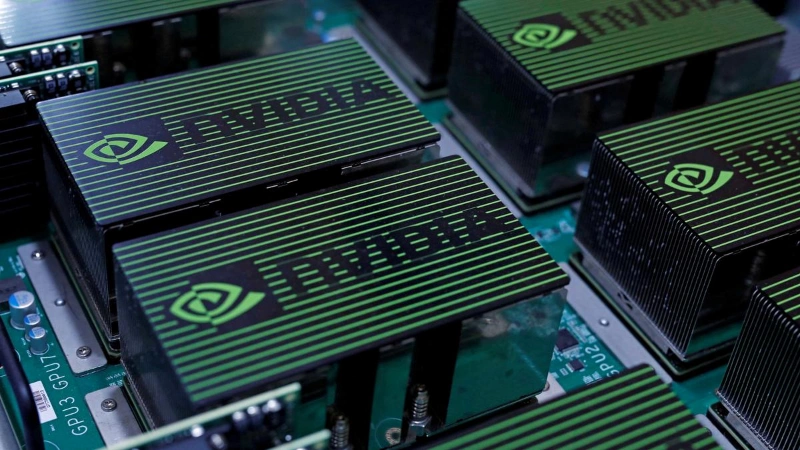China Questions Nvidia on Alleged Security Flaws in Chips

Hong Kong | Beijing has called Nvidia for a discussion regarding potential security flaws in its chips, which poses a challenge to the US company's plans to restart sales in the country following Washington's approval for a chip intended specifically for China.
China's cybersecurity authority announced on Thursday that it has convened a meeting with Nvidia to address concerns about alleged "serious security issues" associated with the company's artificial intelligence processors. The authority mentioned that US AI researchers have "disclosed that Nvidia's computing chips possess location tracking capabilities and can remotely disable the technology."China's Cyberspace Administration has asked Nvidia to clarify the security concerns related to the H20 processors and to provide evidence supporting their assertions.
This announcement comes as Nvidia seeks to rebuild its presence in China after the U.S. lifted a ban on H20 chip exports to the country earlier this month.
After the U.S. reversal, Nvidia's CEO Jensen Huang traveled to Beijing to meet with officials and customers. He highlighted his company's dedication to the Chinese market and introduced a new graphics processing unit from the latest Blackwell series that is intended to adhere to the current U.S. export regulationThe CAC did not disclose which specialists found a back door in Nvidia's devices, nor if similar investigations in China reached the same outcomes. Nvidia has not yet provided a response to a request for comment.
This decision comes after media reports suggested that US Congressman Bill Foster plans to propose legislation mandating Nvidia to incorporate location monitoring in their devices as a means to prevent smuggling into China.
Beijing has informally advised major Chinese tech firms to increase their acquisitions of domestic AI processors to reduce reliance on Nvidia and promote the growth of a competitive local chip industry.
Chinese tech giant Huawei, along with smaller companies like Biren and Cambricon, has benefited from the initiative to localize supply chains for chips.